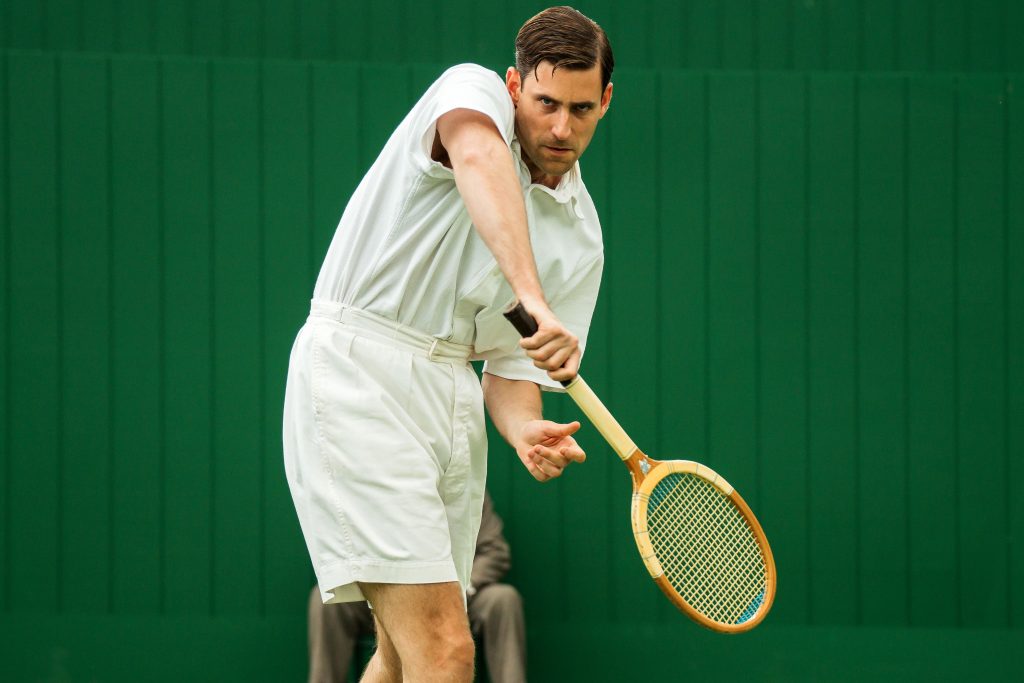
Ella Lily Hyland and Oliver Jackson-Cohen play Audrey, and her ex-husband Nevile Strange, a tennis legend. They’ve known each other since childhood and have been locked in a vicious game all their lives. Note the spelling of his first name, usually spelled Nevile and his fitting last name. You’ll catch the drift on seeing BritBox’ new series Towards Zero, a term meaning approaching death, a shocking adaptation of one of Christie’s lesser-known books. It’s 1936 and family and friends have gathered at Gull’s Point, the remote seaside mansion of wealthy matriarch Lady Tressilian (Anjelica Huston). Assorted family members, including her ward Strange, his ex and current wives Audrey and Kay (Mimi Keene), and those seeking inheritance, are there when Her Ladyship is murdered. Then come a mysterious death, possibly murder, suicide attempts, a child left orphaned, the stuff of high melodrama. No Poirot or Miss Marple, this time its Inspector Leach (Matthew Rhys) looking for clues. When Strange’s dark past comes to light his ex-wife is not surprised. Anne Brodie had questions for Jackson Cohen and Hyland:
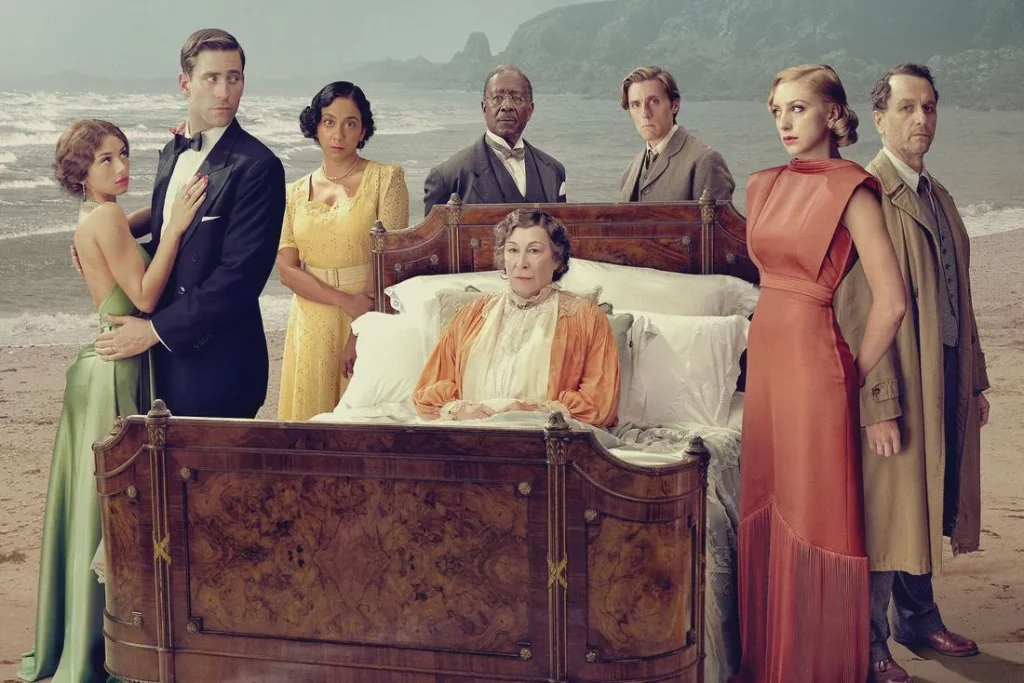
Oliver Towards Zero is the most sinister Agatha Christie adaptation I’ve seen in regards to content, style, the tone, it’s definitely a harsher look at human nature. So what was your impression?
Oliver Jackson-Cohen – That’s how I felt, sort of reading it. It’s sometimes misconstrued as a reboot, but we’re trying something new. It absolutely under no circumstance, felt like an active, you know, decision to but, but it did feel There was an undeniable, darker element to this that I hadn’t ever seen before in previous adaptations, dealing with human complexity of dynamics and this triangle. When I first read it, I thought, there’s something undeniable, that is incredibly relevant, even though it’s set in the 30s. It’s incredibly relatable to today and how we behave.
Oliver’s character, Neil Strange and his current wife attend a weekend party where his ex-wife, which is you, will be. Ella, how did you understand his personality and his decision making in that moment?
Ella Lily Hyland – They know each other since they were kids, playing this weird kind of twisted power game since so strange and unusual, but I think it makes sense for them, it feels natural. If I was asked to do that, I definitely wouldn’t attend the honeymoon. I was asking myself that too, and I was kind of like, like, it makes you investigate further. I wondered why are they operating this way, a kind of attachment and who makes the rules? Audrey’s position, even though she was incredibly wealthy and privileged, and as a woman in her time, how much power she actually had, and how much she had to plug into Nevile’s status and his stardom for her to have her own like value. She needs him, needs to keep playing the game in order to survive. There’s a lot of vulnerability I don’t think she’s even aware of until later on, and but she has this drive to keep on playing to remain visible or relevant and exist, which is really sad. Its about how a lot of toxic or emotionally abusive relationships are still in our world. Even though it’s much more obvious and sinister, and the way we’re looking at it, there is so much resonance to it, which makes it scary, but also its interesting to try and understand.
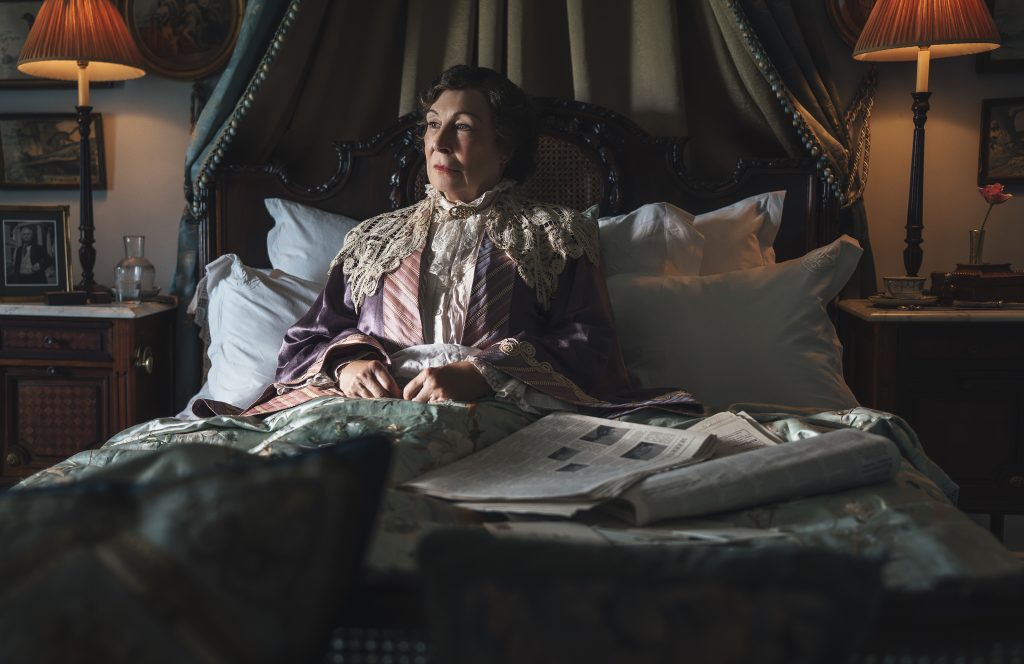
Oliver is we’ve mentioned how sinister and dark your character is. When did you get him and understand him? While reading, shooting, or did you have a special moment where you connected?
Jackson-Cohen – When I first read it, I felt stumped because he, that there’s has a mask like nature. And with Neville, there’s a there’s an arrogance or confidence in himself that I don’t necessarily partake in. It was quite an interesting to try to figure out a way in, and figure out how, his motive and what it is that he wants, and what it is he’s playing out and ugly sides of him and the good sides of him. It became apparent speaking to Sam Yates, our director. He’s so intuitive, and comes from theater that, he encouraged us all to kind of trust our intuition. And it stared to come together, meeting Ella and discussing the Audrey and Neville dynamic, which I thought was so interesting, and trying to piece all of that together. It’s the joy of the job. When I first started like, I used to always I felt like I need to have all the answers to figure everything out. I have to have made all the decisions, all the choices. But the joy of just allowing yourself to work with other people, who inform and surprise you. It’s testament to Sam the ensemble of actors he got together; everyone is so precise in in the way that they work. It was a really inspiring thing.
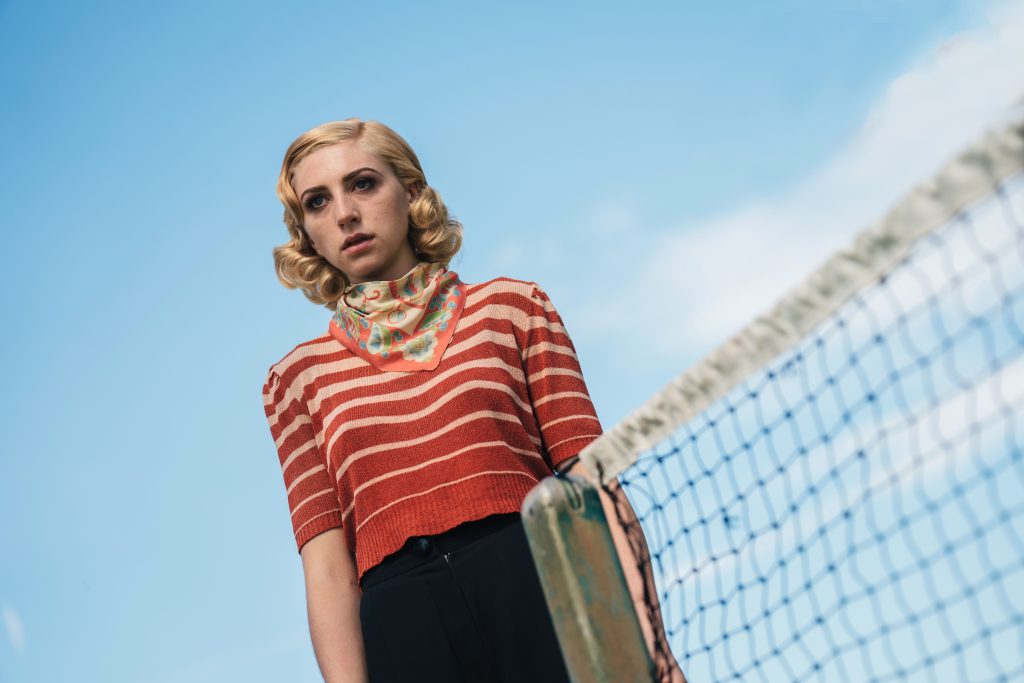
Audrey knows about Neville’s troubled personality and mischief, but she’s still attracted and encourages it. How do you deal with that dynamic?
Hyland – I think they’re opposites. If one person does one thing, the other person has to do a different thing, so that they can remain in balance. Someone said that Nevile’s like the sun, like the sun shines out of him. And Audrey is always described as a shadow where, as in the book, she was described in that way. But I guess in our version, she’s icy or closed or masked, almost like the dark and the light. I don’t think she’s surprised by what she sees in Nevile, the way Nevile might not be surprised of what he sees in her, because they know each other so intimately. So, they’re aware of each other but they can still surprise each other. I feel like versions of that game have been played since they were kids, but how far you push that game? When it can shock? And I think that’s so interesting that that they’ve become immune to the pain that they are putting each other through. And that’s interesting for actors to jump in, this immunity and what does that say when you need to feel something if you’re numb?
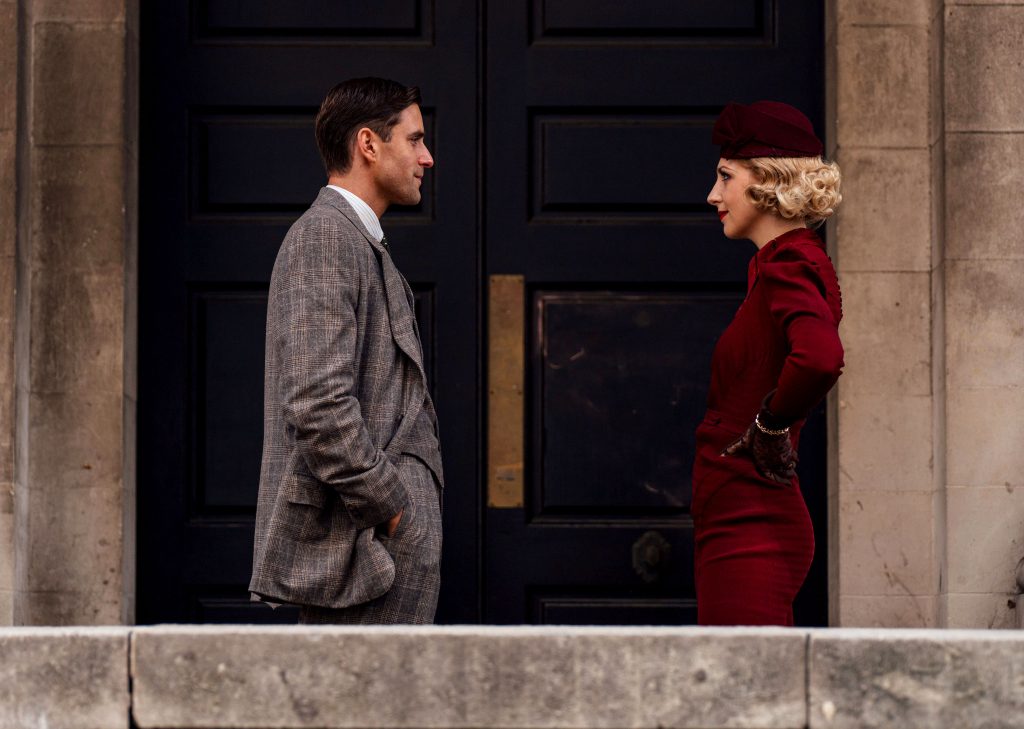
Why do you think Agatha Christie’s work still fascinates generations later?
Hyland – She’s talking about human psychology, and humans just don’t ever change. But I think she’s just so good at dissecting it and in a murder mystery, the stakes are just so high. It’s looking at humans in a really heightened place, when there’s when there’s death, or when there’s …. All of it is so resonant to how we operate now, because we haven’t really changed that much. And there’s an animalistic quality to all these people that are suspects and then what that do to someone, which I think is universal. And part of the reason, I think was that there was talk about psychology by the time that she wrote Towards Zero. She’d started studying Freud, or was speaking to a psychoanalyst or something like that. Someone told me that the way Christie wrote this was very different from prior works. And I do think that that comes through. Human behavior doesn’t change. We are all the same. We just have iPhones now and social media, but it’s just that we are still slightly depraved.
Jackson-Cohen – I think storytelling evolves in the sense that like archetypes evolve like, we start to look at archetypes like differently and with more new ones. I think generations go on for loads of reasons, but I think people keep wanting to go back, because she was kind of really ahead of her time, 100% and then how it’s translated or depicted onto screen, like people are looking at her as a writer rather than just like the surface or archetype. But it’s quite it’s astounding, like looking back at her and the amount that she wrote and the nuance; it’s kind of groundbreaking. There’s a reason why she’s such a celebrated and well-loved crime writer.
Thank you both.
Towards Zero directed by Sam Yates premieres internationally on BritBox April 16th.